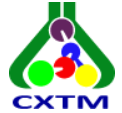Speaker
Description
During the COVID -19 pandemic circumstances, not only was the teaching process at universities suddenly converted to online teaching and learning, but examinations also had to be conducted online in most cases, although it was not always possible to ensure strict control. While it is still relatively easy to provide proper proctoring for individual oral exams, it is more difficult to do so for written exams, which involve several dozen students at a time.
In order to spare students the supervision of two or more cameras focused on each student, or to expose them to the stress associated with timed remote examinations [1], and yet ensure satisfactory exam proctoring [2] of written examinations in physical chemistry involving calculations, we prepared examinations in the Moodle environment with automatic grading for students in the second year of the five-year unified master's degree programme in pharmacy at the Faculty of Pharmacy, University of Ljubljana. The numerical tasks in these exams contained the same text, but students were given randomly selected numbers in these tasks. Based on the given numbers, the correct numerical results were calculated in the Moodle environment and compared with the students' answers, allowing some tolerance for the numerical result.
From the anonymous feedback received from students after the exams via a questionnaire, we can conclude that such an exam was conducted quite successfully without strict supervision and there were no critical problems related to the violation of the integrity of the exam. Although students' willingness to participate in the e-exam was lower than reported in the literature [3], this is not surprising since it was an exam with a high level of difficulty and more complex questions in an environment where a good Internet connection could not be guaranteed. Most of the students' complaints were related to factors beyond the control of the examiners (fear of an interrupted Internet connection, noise at the examination site), while there is still room for improvement of such an examination in the area of controllable circumstances.
References:
[1] V. J. Bhute, J. Campbell, A. Kogelbauer, U. V. Shah and C. Brechtelsbauer: Moving to Timed Remote Assessments: The Impact of COVID-19 on Year End Exams in Chemical Engineering at Imperial College London. J. Chem. Educ. 2020, 97, 2760-2767.
[2] S. Raje and S. Stitzel: Strategies for Effective Assessments while Ensuring Academic Integrity in General Chemistry Courses during COVID-19. J. Chem. Educ. 2020, 97, 3436-3440.
[3] J. Dermo: e-Assessment and the student learning experience: A survey of student perceptions of e-assessment. Br. J. Educ. Technol. 2009, 40, 203-214.



